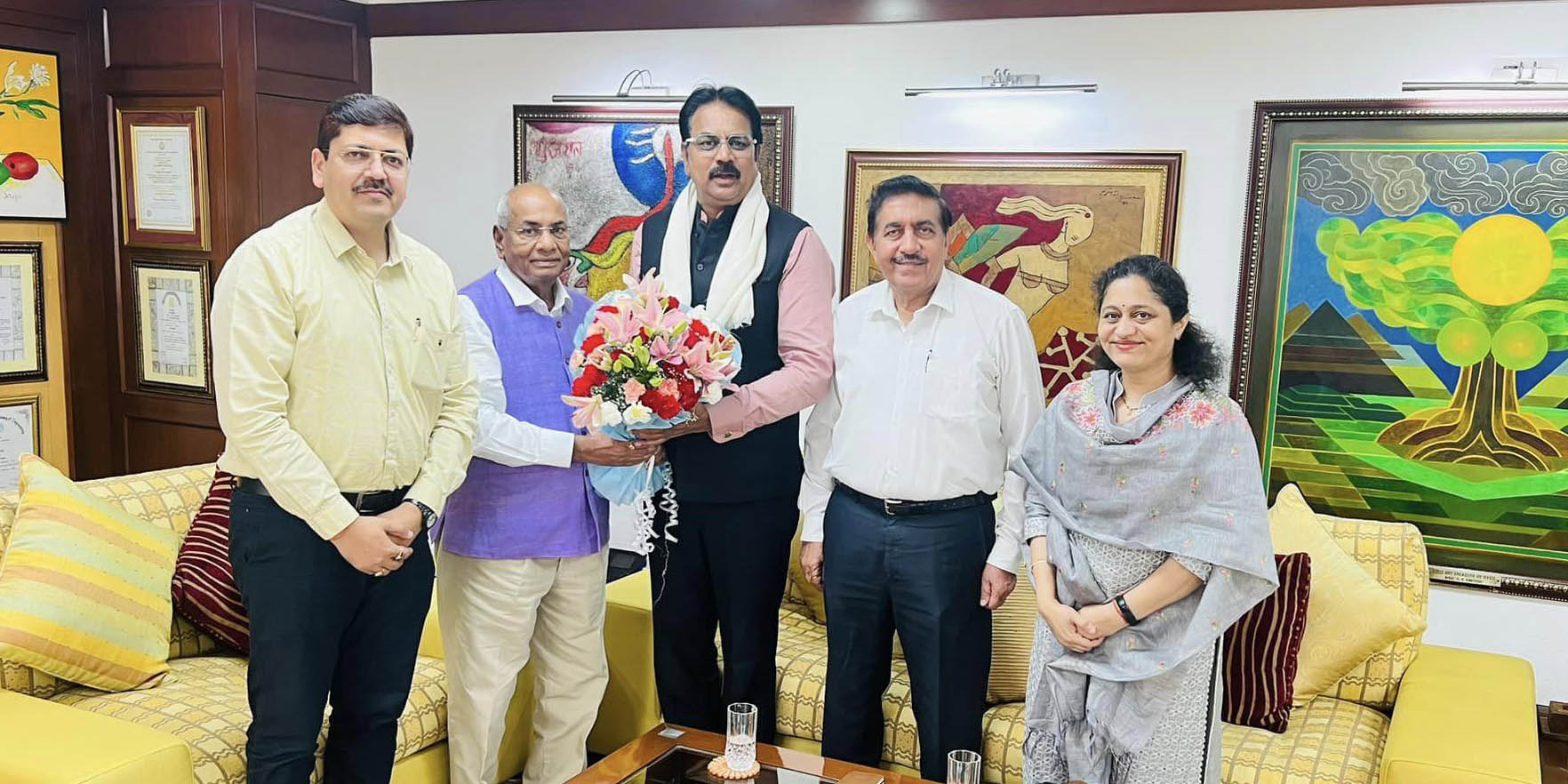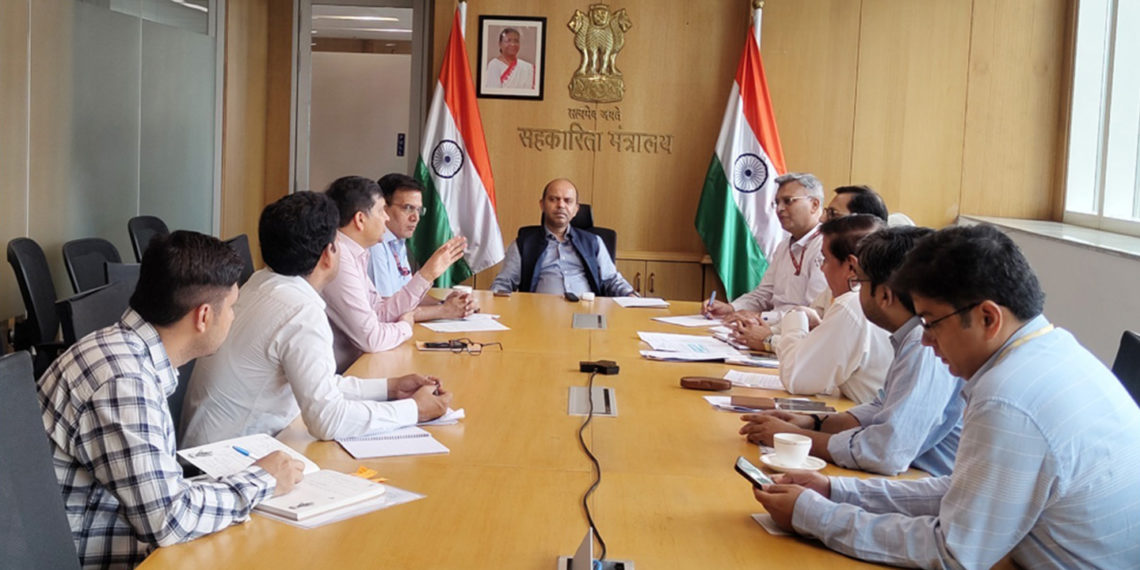National Federation of Cooperative Sugar Factories (NFCSF) Chairman Harshvardhan Patil is currently visiting Delhi, where he is trying to bring the issues of sugar co-ops before the Ministry officials. Patil also met IFFCO MD Dr U S Awasthi and discussed use of Nano fertilizers in sugarcane cultivation.
Union Ministry of Cooperation Secretary Ashish Kumar Bhutani hosted a meeting on this occasion, attended by the NFCSF team and other officials, including the Joint Secretary of DFPD, the Director of the Ministry of Petroleum and Natural Gas, and NCDC MD Pankaj Bansal.
According to sources, NFCSF Chairman Harshvardhan Patil, in a letter to Amit Shah, brought attention to two pressing concerns: the diversion of sugar for ethanol production and compliance with the imposed monthly stock holding limit.
Discussions at the meeting were centered on these critical issues.
It is noteworthy that the Food Ministry has permitted sugar mills to convert their existing stocks of 6.70 lakh tonnes of B-heavy molasses into ethanol, with many cooperative sugar mills already producing ethanol from sugar.


In a social media post, IFFCO’s co-op relations officer, Santosh Shukla, stated, “Shri Harshvardhan Patil, a renowned politician, cooperator, and former Minister of Maharashtra, along with Shri Prakash Naiknavare, was warmly welcomed by MD Dr. U. S. Awasthi.”
The visit featured a productive discussion about IFFCO’s innovative products, Nano Urea+ and NanoDAP, and their applications in sugarcane production.
Since Harshvardhan Patil, a BJP member, assumed leadership, NFCSF has undergone significant revitalization. Previously, the Modi government offered substantial relief to the sugar cooperative industry by announcing that sugar cooperative mills would not be subjected to additional income tax for compensating farmers above the Fair and Remunerative or State Advised Price.
Moreover, the Union Budget 2023-24 addressed long-standing issues by allowing sugar cooperatives to count payments made to sugarcane farmers prior to the assessment year 2016–17 as expenditures, providing relief of nearly Rs. 10,000 crores.





















































